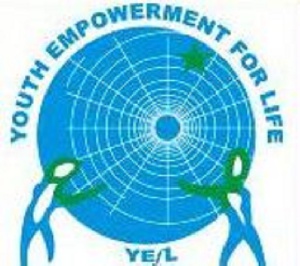On August 12, the world celebrated International Youth Day under the theme “From Clicks to Progress: Youth Digital Pathways for Sustainable Development,” focusing on the potential of digital technology in youths' lives.
In Ghana, where more than 60% of the population is below the age of 35, the youth, particularly those in rural areas, face many challenges. These challenges are compounded by low education standards, high unemployment and underemployment, and inadequate social amenities.
The digital skills gap is especially significant, and most rural youth cannot access the internet and the skills required to operate in the modern economy. These challenges are aggravated by the effects of climate change and environmental degradation, which are likely to deepen the social and economic vulnerability of many people living in rural areas.
The inability to access digital technology not only excludes young people from matters pertaining to education and employment but also from addressing the challenges and participating in the formulation of solutions to these challenges by the global community.
The Alliance for Empowering Rural Communities (AERC) acknowledges the functions of digital technology in the lives of youths. Through its efforts, AERC has been able to train over 15 of its volunteers and interns in using essential digital tools like Microsoft suite apps and professional email management.
By way of its activities, AERC is in the process of preparing the young generation of Ghanaians with requisite digital competencies for the actualization of sustainable development goals and to foster sustainable development within society.
Digital Empowerment Programs are flagship programs that the country needs to adopt, aimed at helping rural youths to have access to digital devices and skills. Although some cases of implementation have been recorded in the country, facilities responsible for this are redundant, further exacerbated by a lack of electricity, theft, and neglect.
Online schooling, virtual conferences, and other forms of digital activity have a positive impact on actualizing skills in the spheres of business, environment, and politics. By addressing the digital divide, AERC positively calls for stakeholders to take action on the UN Sustainable Development Goals, especially those of quality education (SDG 4), decent work and economic growth (SDG 8), and reduced inequalities (SDG 10).
The role of AERC is to engage local government and community leaders so that rural youth needs and perspectives are considered in policy decisions impacting young people.
Additionally, it fosters the capacities of youth and communities in achieving sustainable development as envisaged in the sustainable development goals. The theme “From Clicks to Progress” means that sustainable development should come from online activity by translating it into tangible action. On this year’s International Youth Day, it is evident that digital technology is one of the powerful tools for change in the future.
The case of the Alliance for Empowering Rural Communities shows that if specific attempts are made to improve the situation of youths and their access to digital skills and tools, the United Nations SDGs are within reach. Ghana must therefore keep investing in digital pathways so that the future of this country is not one where the youth are passive actors, but active shapers of a sustainable future.
General News of Tuesday, 13 August 2024
Source: Alliance for Empowering Rural Communities

















